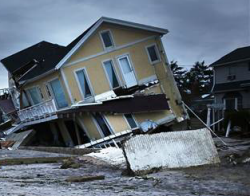
The Major Ways To Protect Your Assets Against Claims
A New And More Affordable Student Loan Program

How Much Should I Withdraw From My Retirement Account Annually?

Storm Victims Need To Be Aware of Hurricane Deductibles

Most homeowners with an insurance policy are aware that they have to meet their deductible before the insurance company will cover any damage. However, few are aware that insurance policies include a separate provision for hurricanes. What does this mean for those affected by Sandy? Read More.
Getting Your Hurricane Sandy Insurance Claims Paid Quickly

Contrary to Hurricane Irene, Sandy left the Mid-Atlantic states with catastrophic damage. The areas hit the worst include New Jersey, New York & Connecticut. Initial estimates indicate that the total damages could exceed $50 billion, which would rank among the second costliest storms in U.S. history; behind Hurricane Katrina. Given the significant loss, many affected families are going to be submitting insurance claims very shortly, if they haven’t already done so. What can you do to increase the chances that your claim is paid quickly? Read More.
Are Insurance Proceeds From Hurricane Sandy Taxable?

Hurricane Sandy was a major blow for several homeowners and businesses. The losses are unprecendented for the region and will trigger an excessive number of insurance claims. It’s important to understand the tax ramifications, if any, for receiving an insurance settlement on a claim. Read More.
Should I Still Contribute To My 401K When I’m Older?

Should I Sell My Car to Payoff Credit Card Debt And Lease One Instead?

Do You Know What the Fees Are For Your 401(K) Plan Now?

Back in May, we noted that the new 401(k) disclosure rules would be in effect by the end of the summer. The intent of these rules was to provide greater transparency to both employers and employees. Did it work and have you noticed a difference in the reporting? Read More.
Should I Withdraw From My IRA or 401K to Pay Down Debt?

This is a common question that frequently crosses our desk. Individuals with credit card debt often consider withdrawing from their retirement accounts to pay down debt. While this may seem like a simple decision, there are many factors and costs to consider before withdrawing. Read More.


